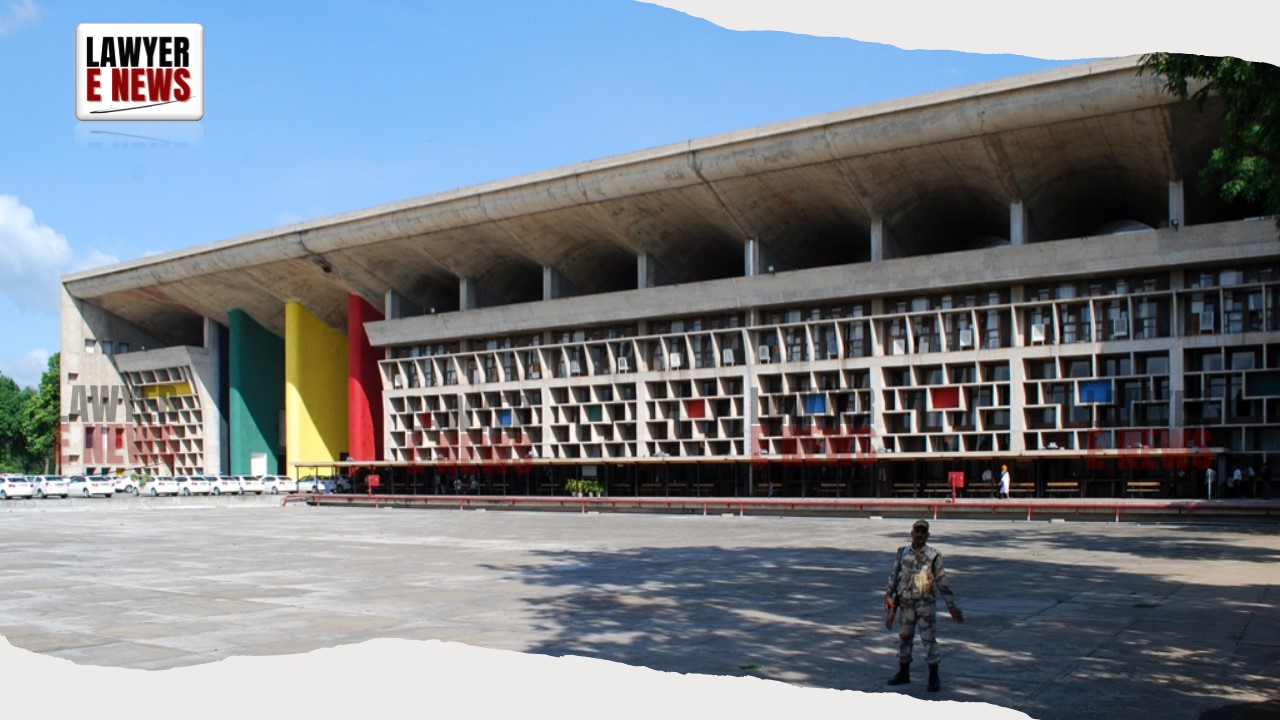-
by Admin
15 February 2026 5:35 AM



Punjab and Haryana High Court, presided by Justice Deepak Gupta, upheld the rejection of a suit filed by Gurpreet Kaur and another plaintiff, seeking declaration and injunction over property allegedly inherited from their grandfather, Tej Partap Singh. The High Court reaffirmed the decision of the lower courts, rejecting the plaint under Order VII Rule 11 of the Code of Civil Procedure (CPC) on grounds of lack of cause of action, absence of locus standi, limitation, non-joinder of necessary parties, and improper court fee valuation.
The appellants, Gurpreet Kaur and another, filed a suit in 2015 for declaration and injunction against multiple respondents, including Kulwant Singh @ Beant Singh and others, concerning ancestral property allegedly owned by Tej Partap Singh, who passed away in 1971. The plaintiffs contested the validity of a 1971 will purportedly executed by Tej Partap Singh, which divided the property among various beneficiaries, including the plaintiffs' mother, Ravinder Kaur, who accepted her inheritance and conducted transactions based on her share.
The suit also challenged several oral wills of other deceased family members and approximately 23 property transfers spanning decades. The trial court initially rejected the plaint under Order VII Rule 11 CPC, ruling that the plaintiffs lacked standing, the suit was time-barred, and there was non-joinder of necessary parties. This decision was upheld by the first appellate court.
The High Court held that as grandchildren of the deceased Tej Partap Singh, the plaintiffs lacked the locus standi to challenge his will. Under the Hindu Succession Act, only Class-I heirs—such as children and spouses—are entitled to inherit directly from a deceased ancestor.
The court stated, "The plaintiffs, as grandchildren of Tej Partap Singh, are excluded from the Class-I heir category, and hence, cannot directly inherit or challenge the will." Since their mother, Ravinder Kaur, a direct heir, was alive at the time of Tej Partap Singh's death and did not contest the will, the plaintiffs have no legal standing to reopen succession.
The High Court found the suit to be barred by limitation, as most of the transactions contested by the plaintiffs were executed between 1971 and 2005. The plaintiffs argued that they only discovered the details of the transactions after their mother's death in 2013.
The court rejected this argument, stating, "A fictitious cause of action cannot extend the limitation period. The plaintiffs' claim is barred by limitation as the right to challenge inheritance crystallized upon Tej Partap Singh's death in 1971." The court emphasized that limitation cannot be circumvented through “creative drafting” to give the illusion of a later cause of action.
The suit involved numerous transactions involving third-party transferees, many of whom were not joined in the suit. The court held that effective relief could not be granted in the absence of these parties, rendering the suit defective under Order I Rule 9 CPC.
Citing Moreshar Yadaorao Mahajan v. Vyankatesh Sitaram Bhedi, the court reiterated that "a necessary party is one without whom no effective decree can be passed." As several transferees were not impleaded, the court ruled that the non-joinder was fatal to the suit.
The court ruled that the plaintiffs were liable to pay ad valorem court fees based on the value of the contested transactions, as they sought cancellation of those deeds while not being in possession of the property.
The court cited Suhrid Singh @ Sardool Singh v. Randhir Singh in support, stating, "When a non-executant of a deed challenges its validity while out of possession, ad valorem court fees are required on the market value of the property involved."
The High Court dismissed the appeal, affirming that the trial court was correct in rejecting the plaint. The court ruled that the plaintiffs, lacking both locus standi and a timely cause of action, could not claim any right in Tej Partap Singh's estate. The suit was deemed barred by limitation and fatally defective for non-joinder of necessary parties and improper court fee payment.
The court emphasized that allowing such claims would disrupt settled inheritances, especially after the direct heirs had accepted their shares and conducted transactions based on their inheritance for over four decades. Justice Gupta observed, "This suit, filed decades after the death of the ancestor and the completion of inheritance, is nothing but an abuse of process, attempting to unsettle vested property rights."
The Punjab and Haryana High Court's ruling reinforces key principles of succession under Hindu law, particularly the rights of Class-I heirs and the binding nature of a will once inheritance is settled. It highlights the importance of timely claims in property disputes and the necessity of joining all relevant parties when contesting longstanding transactions. The decision provides a clear precedent against attempts to reopen inheritance matters after significant delays, reaffirming the need for judicial efficiency and respect for established property rights.
Gurpreet Kaur and Another v. Kulwant Singh @ Beant Singh and Others
Date of Decision: October 14, 2024
